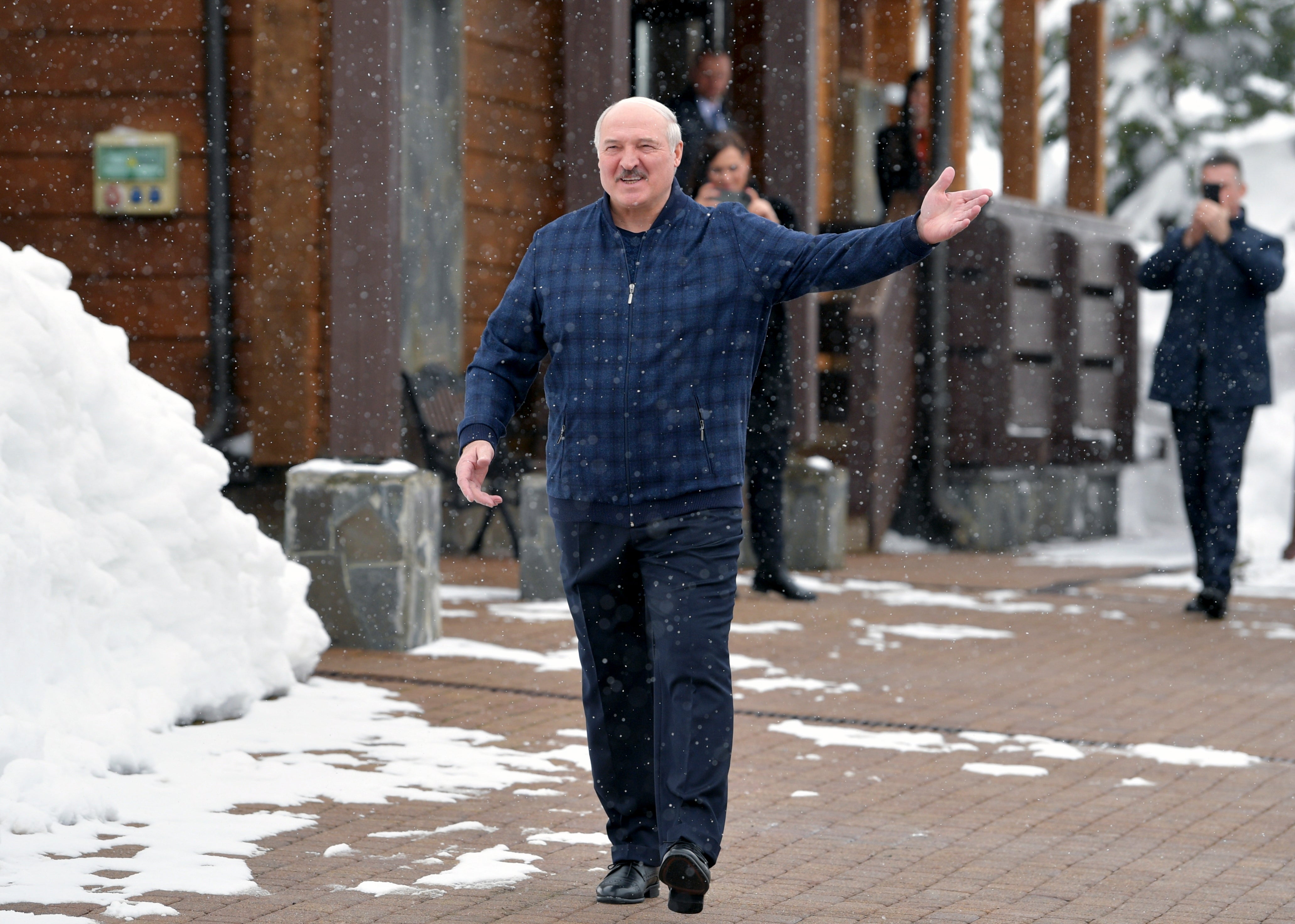EU extends Belarus, Lukashenko sanctions for a year
The European Union is prolonging sanctions targeting the president of Belarus and dozens of officials by one year

Your support helps us to tell the story
From reproductive rights to climate change to Big Tech, The Independent is on the ground when the story is developing. Whether it's investigating the financials of Elon Musk's pro-Trump PAC or producing our latest documentary, 'The A Word', which shines a light on the American women fighting for reproductive rights, we know how important it is to parse out the facts from the messaging.
At such a critical moment in US history, we need reporters on the ground. Your donation allows us to keep sending journalists to speak to both sides of the story.
The Independent is trusted by Americans across the entire political spectrum. And unlike many other quality news outlets, we choose not to lock Americans out of our reporting and analysis with paywalls. We believe quality journalism should be available to everyone, paid for by those who can afford it.
Your support makes all the difference.The European Union on Thursday prolonged sanctions targeting dozens of Belarus officials, including President Alexander Lukashenko for a year over allegations of fraud in the country's presidential election last summer and the crackdown on peaceful protesters that followed.
The measures include an asset freeze and bans on traveling in the 27-nation EU for 88 people, including politicians, state security personnel and businesspeople, and asset freezes on seven organizations. EU citizens and companies also are forbidden from providing them with funds.
The sanction also apply to Lukashenko’s son Viktor, who acts as his father's national security advisor, and are set to remain in force until at least Feb. 28, 2022.
Protests rocked Belarus for months after official results from the Aug. 9 presidential election gave Lukashenko a sixth term in office by a landslide. The opposition and some poll workers have said the election was rigged. The EU also rejected the results.
Police arrested thousands of people during the anti-government protests.
At a meeting on Monday, EU foreign ministers said they would consider adding more people to the list given “the continuing disrespect for fundamental freedoms and human rights” in Belarus, as well as the ongoing repression of people by Belarusian authorities.